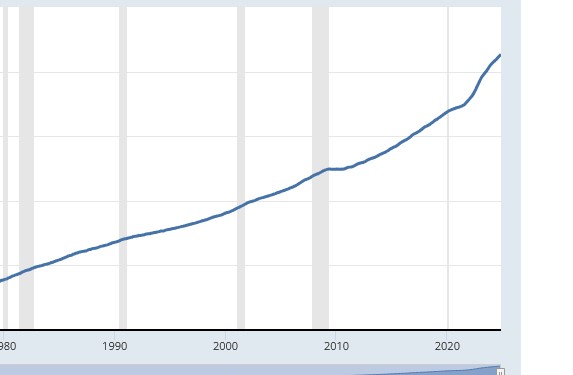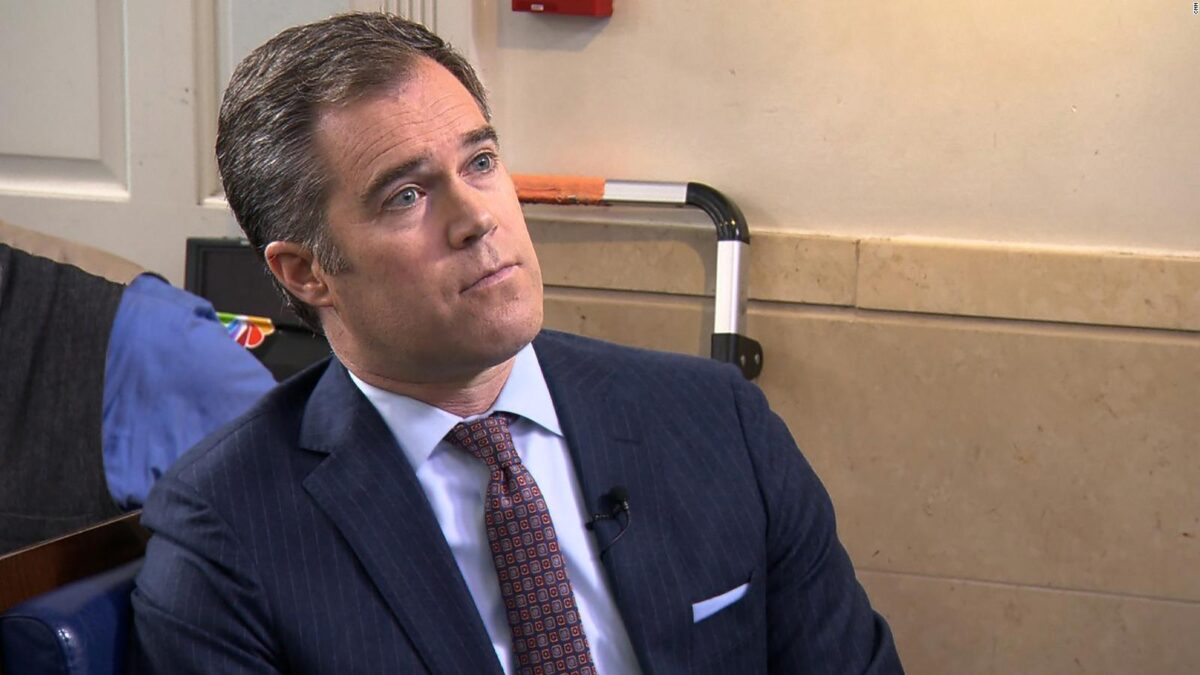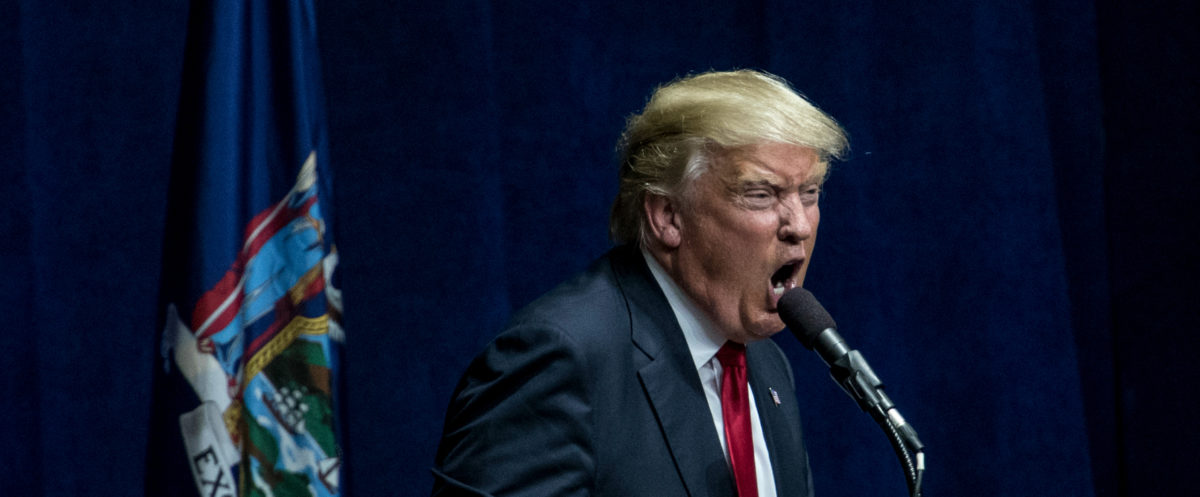On Friday, the U.S. Department of Housing and Urban Development (aka HUD) released its Annual Homelessness Assessment Report and the data is extremely dispiriting and disturbing. Homelessness rose 18.1% over the course of 2024. And to give you an indication of just how dramatic this unfathomable rise truly is, by point of comparison, homelessness increased 19.2% from 2007 to 2024. In other words, in one year, homelessness increased at nearly the exact same rate that it had over the course of the previous seventeen years. As HUD was careful to note in its press release, this report was generated from data collected more than a year ago. Meaning that the tally of homeless Americans — which stood at 770,000 on a cold solitary night in January 2024 — is undoubtedly larger than this.

The culprits, of course, are the lack of affordable housing and wages not rising fast enough to accommodate this new influx of people who don’t make enough money at their jobs to pay their rent. The chart pictured above is taken from data pulled from the U.S. Bureau of Labor Statistics, which shows a dramatic upward curve — one that correlates with the sharp increase in homelessness during the last seventeen years — of the consumer price index for the average residential rent in America. 230,806 in January 2007 to 426,651 in November 2024. According to the NYU Furman Center, the median gross rent increased by 16.2% between 2011 and 2021. In Los Angeles County, the average rent increased 14.09% between 2023 and 2024. The average rent in Chicago went up $600/month in just under ten years.
There has not been a federal increase in minimum wage since 2009. A series of amendments to the Fair Labor Standards Act, passed in 2007 increased the minimum wage to $5.85/hour as of July 24, 2007, $6.55/hour as of July 24, 2008, and $7.25/hour as of July 24, 2009. In other words, during the same time window in which homelessness drastically increased, minimum wage — which was intended to offer the bare minimum to live in America — has not risen in direct proportion to these draconian costs.
In other words, the data couldn’t be any clearer. Even before Donald Trump has taken office, the United States is presently experiencing the worst homeless crisis seen since the Reagan years, in which homelessness doubled from 1984 to 1987. But in 1984, the number of homeless people was lower, estimated to be somewhere in the area of 200,000 to 500,000. Reagan famously cut vital social services that were designed to combat this grossly immoral and utterly cruel neglect of the most marginalized members in society.
This is only going to get worse.
Trump is prepared to go much further than Reagan with the newly created Department of Government Efficiency (aka DOGE). Elon Musk and Vivek Ramaswamy are prepared to dismantle nearly anything that’s left to aid the vulnerable. Earlier this month, Elon Musk stated, “In most cases, the word ‘homeless’ is a lie. It’s usually a propaganda word for violent drug addicts with severe mental illness.” On July 25, 2023, when Ramaswamy was running for President, he published an op-ed in The New York Post in which he outrageously suggested that homeless people should stop receiving any financial assistance whatsoever and risibly concluded that a focus on “family, faith, and truth” would somehow serve in lieu of the vital cash needed to escape impoverishment. Last I heard, “family, faith, and truth” isn’t recognized as our national currency and it sure as hell isn’t going to buy you a sandwich at the bodega. “Family, faith, and truth” — particularly the truth twisted with coldblooded glee — won’t land you an apartment when the average rent continues to rise. It won’t build affordable housing units. It won’t, in short, solve the problem. But these two callous vultures are now eager to slice anything that remains of homeless aid.
And if you seriously believe that the Democrats are going to come to the rescue, think again. The duplicitous Bill Clinton set the cruel tenor when he signed the Welfare Reform Act in 1996, dismantling ADFC and replacing it with a forced labor requirement if you hoped to receive the penurious allotment to put food on your table or diapers for your children. The Welfare Reform Act was never intended to help the homeless. It was set up to create welfare companies that could profit from these new marks. In 2023, That Uncertain Hour‘s Krissy Clark conducted an investigation on this nefarious practice, which has been scantly reported on in by corporate media.
In 2014, Obama signed the Farm Bill, which made more than $8 billion in cuts to the food stamp program and increased the likelihood that someone teetering on the edge of homelessness would fall off the precipice. 89 Democrats voted for this vile bill in the House.
How much would it cost to cure poverty in America? The great Matthew Desmond has calculated the figure at $177 billion. That’s how much it would take annually to ensure that all Americans rise above the poverty line. He believes that if the richest 1% paid their fair share, this new safety net would eliminate homelessness and its attendant problems (crime, addiction, mental health).
But the prospect of any radical remedy to a very serious problem is nonexistent under Donald Trump and under a House and a Senate that is controlled by Republicans. These politicians have been purchased by the very millionaires and billionaires who don’t want to pay their fair share for American success.
Given all this overwhelming data, one must naturally ask what it will take for America to get serious about homelessness. How many people have to become homeless before the issue, which is already out of control, is properly addressed? Two million? Ten million? Fifty million?
Lawmakers and everyday Americans have grown accustomed to looking the other way when they see a homeless man begging for change on the streets. This is a deeply ingrained behavioral pattern that needs a significant 180. Because it’s very clear that government is not going to help us. But maybe if we get serious about pooling our resources through mutual aid, we can do what the government can’t.
What’s so astonishing is that it actually would not cost that much to fix poverty. If we take Desmond’s figure of $177 billion and divide it by the American population of 334 million, that works out to $526 each year that every American would have to pay. Five hundred dollars. That’s half the price of your annual cable bill. That’s five trips to the grocery store. Five nights out on the town. It really doesn’t cost that much. In fact, the annual tally would be considerable less for the working-class and the middle-class if those in the higher income brackets paid a greater proportion.
Financially speaking, it makes no sense whatsoever for the plutocrats to continue profiting on the underprivileged. If the homeless population continues to rise so rapidly, there won’t be a consumer class that can prop up the economy. Unless, of course, the idea here is to create a new form of slavery, whereby the hungry and the homeless are forced to toil for the most picayune remuneration imaginable while being deracinated of all opportunity and democratic agency. Given the sociopathic declarations from Elon and Vivek, it would appear that this is going to be the plan. Because why does anyone need a roof over his head when there’s “family, faith, and truth”?



















